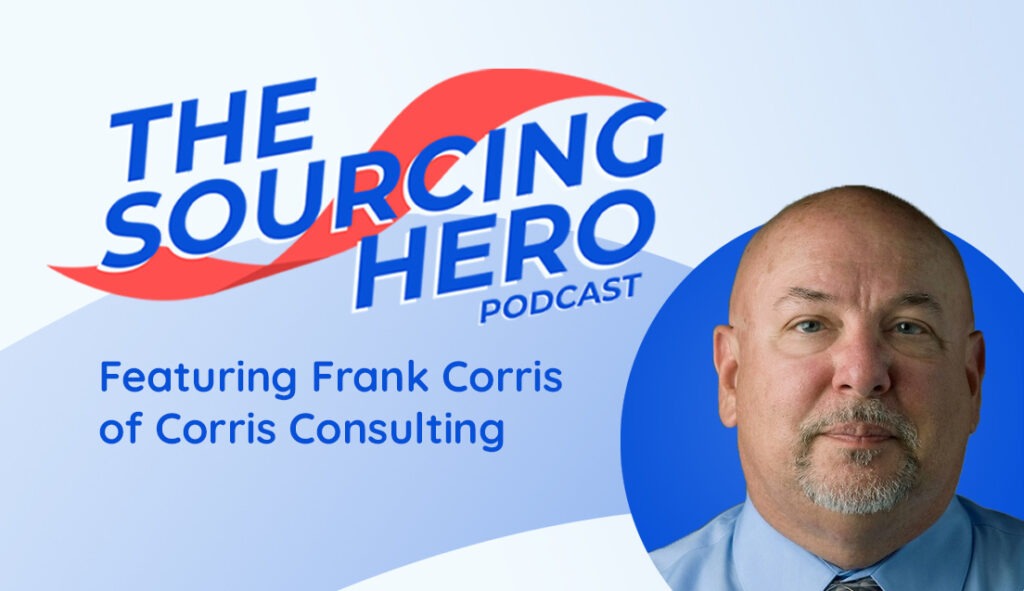6 Lessons About Career Mentoring from The Sourcing Hero Podcast
By Hugo Britt | January 12, 2021
From early childhood, human beings are conditioned to recognize and appreciate the value of a good mentor – whether it’s Yoda, Jiminy Cricket, Gandalf, or the cool kid in the grade above at school who taught us the laws of the playground.
Statistics show that mentoring is just as impactful into adulthood and the workplace. CNBC and SurveyMonkey’s 2019 Workplace Happiness Survey found that 91% of employees with a career mentor were either satisfied or very satisfied in their role. Those with a mentor are also more likely to be content with their compensation package and believe that their contributions in the workplace are valued.
Other benefits associated with effective career mentoring programs include:
- An increase in employee productivity and motivation, leading to accelerated career progression.
- Opportunities for reverse mentoring, contributing to diversity of thought within leadership teams.
- Greater job satisfaction and a sense of fulfillment, reducing employee turnover.
- Establishing a workplace culture of continual learning.
Finding the perfect mentor takes time, and there’s certainly no one-size-fits-all approach. You might find a mentor when and where you’re least expecting it, or at a much later stage in your career.
Guest speakers on The Sourcing Hero podcast have shared several tips to help you on your journey to a successful mentorship.
A good mentor is aspirational
You know you’re onto a good thing once you find a mentor who inspires your future work ethic and leadership decisions. In Episode 2 of The Sourcing Hero podcast, Una’s Head of Marketing, Katherine McCleery spoke to Frank Corris, CEO of Corris Consulting Group.
A relationship Frank established at the very beginning of his career left a lasting impression. “Tom was a genius and to this day he might still be the best guy that I ever worked for. When I get into those difficult moments as a manager and a director I always ask myself what would Tom do and how would Tom have handled that.”
Don’t underestimate the importance of kindness
Mentorships are often the most effective way to bridge the gap between junior employees and senior leadership. In Episode 6 of The Sourcing Hero podcast, Katherine spoke to former CPO Joanna Martinez.
Joanna notes when people grow up in successful families, the workplace is a much less intimidating place. “They are exposed to family members who are executives and godparents who run businesses, [which means] they get a chance to develop relationships with people organically over the course of their lives. They’re not intimidated or nervous about talking to a Vice President because there are six Vice Presidents sitting around the table at Thanksgiving.”
As “one of the poor kids,” Joanna put herself through school and had never met an executive before her career began. “You’re suddenly [in the workplace] and there’s a senior-level person and you don’t know how to have a conversation,” she recalls.
Joanna’s advice for employees in a similar position is to seek out a kind mentor. “Find someone who is senior enough and with enough experience. But I do say kind for a reason; someone who isn’t full of ego.”
It’s ok to proactively seek out career mentoring
Today, many organizations implement formal career mentoring programs, which ensures all employees can benefit from the wisdom and guidance of their senior, and more experienced, colleagues. If a program like this isn’t available in your workplace, don’t be afraid to seek out a mentor for yourself and ask them for help.
My advice to young people especially when you’re first out of school is to be observant and find somebody that can help you. Ask for help and don’t think that your education stops.
Frank Corris, CEO, Corris Consulting Group
Your mentor doesn't need to be a procurement professional
Finding a mentor has no time constraints
Frank counts himself extremely lucky to have benefited from an inspiring mentor in the early stages of his career. But he notes that various mentors have come and gone as he advanced through the workforce: “I’ve had two or three people that saw something in me that helped me learn how to be a better manager.”
If you’re several years into your career, don’t rule out the possibility of finding a brilliant mentor. Senior leaders can benefit enormously from reverse mentoring because it’s never too late to learn, grow, or receive guidance from others.
Not all organizations are designed for career mentoring
An organization that doesn’t value inclusivity or prioritize the development of its employees is unlikely to be a hotbed for inspiring mentors – as Joanna found out in her very first position.
As the only female in a technical role, she was expected to have lunch with the assistants and not the other professionals in her team. Joanna quickly realized no one at this organization would be willing to help her develop and so she found employment elsewhere.
“I was lucky enough to soon afterwards get in a relationship with someone who became a really good mentor. When she left the firm there was somebody else who was a good mentor and they really got me on the right track.”
Have you checked out The Sourcing Hero podcast series yet? We’ve quizzed some of the procurement profession’s top influencers to learn everything we can about optimizing spend culture, driving transformation, delivering value beyond cost, and much more.
Access the full episodes here.



